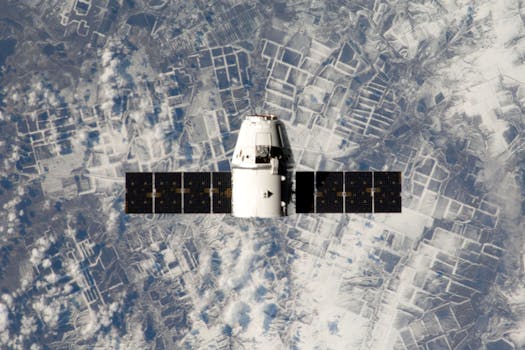The Future of Satellites: Revolutionizing Global Connectivity
The future of satellites is poised to revolutionize global connectivity, enabling faster and more reliable communication services. With advancements in space technology, satellites are becoming increasingly important for various industries, including telecommunications, navigation, and weather forecasting.

The Future of Satellites: Revolutionizing Global Connectivity
The future of satellites is poised to revolutionize global connectivity, enabling faster and more reliable communication services. With advancements in space technology, satellites are becoming increasingly important for various industries, including telecommunications, navigation, and weather forecasting. The use of satellites has been steadily increasing over the years, and it is expected to continue growing in the future.
Advancements in Space Technology
One of the key drivers of the growth of the satellite industry is the advancement in space technology. New technologies such as reusable rockets, advanced propulsion systems, and more efficient satellite designs are making it possible to launch satellites into space at a lower cost. This has led to an increase in the number of satellite launches, with many companies and countries launching their own satellites into space.
Another significant advancement in space technology is the development of small satellites, also known as cube satellites. These satellites are smaller and lighter than traditional satellites, making them less expensive to launch and operate. They are also more agile and can be used for a variety of applications, including Earth observation, communication, and navigation.
Applications of Satellites
Satellites have a wide range of applications, including telecommunications, navigation, weather forecasting, and Earth observation. Telecommunication satellites are used to provide internet and phone services to remote areas, while navigation satellites are used for GPS and other location-based services. Weather forecasting satellites are used to monitor the weather and predict storms, while Earth observation satellites are used to monitor the environment and track changes in the climate.
In addition to these applications, satellites are also being used for scientific research and exploration. For example, NASA’s Hubble Space Telescope has made many significant discoveries about the universe, while the European Space Agency’s Gaia satellite has created a highly accurate map of the Milky Way galaxy.
Challenges and Opportunities
Despite the many advantages of satellites, there are also several challenges and opportunities that need to be addressed. One of the major challenges is the issue of space debris, which is a growing concern for the satellite industry. Space debris refers to the accumulation of old and broken satellites, rocket parts, and other objects in Earth’s orbit, which can pose a risk to operational satellites and other spacecraft.
Another challenge is the need for sustainable and environmentally friendly practices in the satellite industry. The production and launch of satellites require significant resources and energy, and the industry needs to find ways to reduce its environmental impact. This can be achieved through the use of more efficient technologies, such as solar-powered satellites, and the development of more sustainable launch systems.
Despite these challenges, the satellite industry is full of opportunities. The growing demand for satellite services, particularly in the telecommunications and navigation sectors, is creating new business opportunities for companies and countries. The development of new technologies, such as reusable rockets and small satellites, is also creating new opportunities for innovation and entrepreneurship.
Conclusion
In conclusion, the future of satellites is bright and full of opportunities. With advancements in space technology, the satellite industry is poised to revolutionize global connectivity and enable faster and more reliable communication services. While there are challenges that need to be addressed, such as space debris and sustainable practices, the benefits of satellites far outweigh the costs. As the satellite industry continues to grow and evolve, it is likely to play an increasingly important role in shaping the future of our planet.




